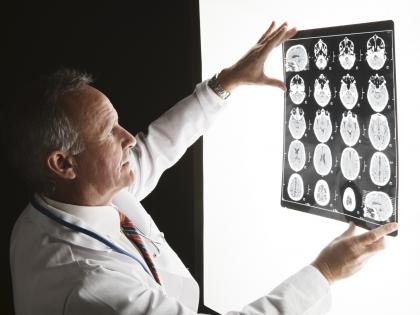Increase the Dementia Competency of the Health Care Workforce and Ensure Providers Complete Dementia-Specific Training

People living with Alzheimer’s and other dementia face unique health care needs. State policymakers can take action by:
- Requiring ongoing, evidence and competency-based, dementia-specific training for all employees in every provider setting involved in the delivery of care for people living with dementia.
- Requiring training on the diagnosis, treatment and care of individuals with cognitive impairments for the renewal of a physician's license.
- Issuing evidence-based clinical assessment and diagnostic practice guidelines to licensed health care professionals within their scope of practice.
Improve Residential and HCBS Provider Licensure Requirements for Dementia Care
People living with Alzheimer’s are nearly five times as likely to need skilled nursing facility care and more than three times as likely to require home health care than individuals living without the disease. State policymakers can take action by:
- Ensuring evidence-based and acuity-based staffing methods are a condition of licensure in all care settings.
- Establishing an appeals process for any individual involuntarily discharged or transferred from a residential facility for dementia-specific behaviors.
Establish and Implement Quality Measures that Protect and Enhance the Lives of Individuals Living with Dementia Regardless of the Care Setting

More than 60% of seniors with Alzheimer’s living in a nursing home have moderate or severe cognitive impairment, and 34% of those in residential care settings have Alzheimer’s or other dementia. State policymakers can take action by:
- Adopting quality care indicators related to cognitive assessments, diagnosis, direct care staffing ratios, preventable hospitalizations and other care and safety needs for use in determining Medicaid or state reimbursement.
- Requiring quality care indicators to be reported to the general public.
- Requiring data collection and reporting to the licensure agency for any involuntary discharge of individuals living with dementia.
- Requiring all critical incidents related to individuals living with dementia be documented and reported to the licensure agency within 24 hours.
Ensure Individuals Living with Dementia Who Are Under Court-Ordered Guardianship Receive Guardianship Services by a Dementia-Educated Guardian
Due to the impact of dementia on a person’s ability to make decisions and in the absence of other advanced directives, people living with Alzheimer’s disease may need the assistance of a guardian. State policymakers can take action by:
- Requiring dementia-specific training for providers of public guardianship services.
Resources to Drive Change in Your State
The following resources will help you learn more about how you can help improve the quality of care in your state.
Alzheimer’s Policy in the States
Across the nation AIM advocates are working to advance public policies to improve the lives of individuals and families impacted by Alzheimer’s and all other dementia. Learn about Alzheimer’s policies and advocacy in your state.